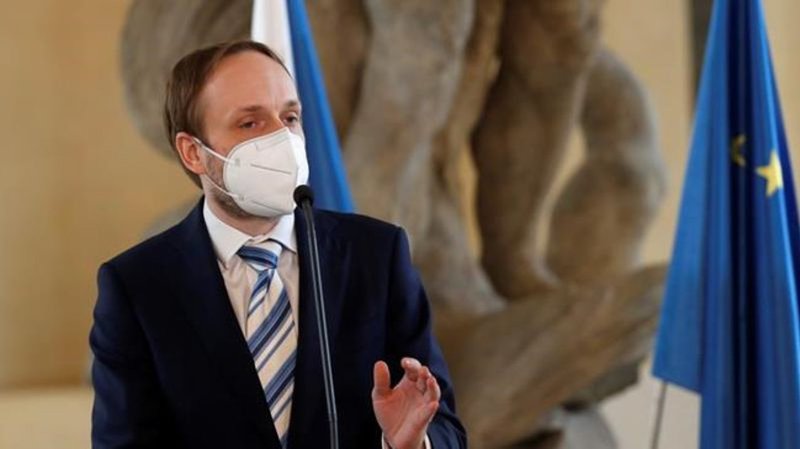
Czechs expel more Russians in dispute over 2014 depot blast
PRAGUE, Czech Republic — The Czech Republic on Thursday ordered 63 more Russian diplomats to leave the country, further escalating a dispute between the two nations over the alleged involvement of Russian spies in a massive ammunition depot explosion in 2014.
Foreign Minister Jakub Kulhanek said Russia won’t be allowed to have more diplomats in Prague than the Czechs currently have at their embassy in Moscow. All others have to leave by the end of May, he said.
The Czech secret services have repeatedly warned that Moscow had a disproportionately high number of diplomats at the embassy in the European Union nation, using it as a base for undercover spies.
“I don’t want to escalate anything,” Kulhanek said. “It’s not a role for the foreign minister. But the Czech Republic is a self-confident country and will act accordingly.”


